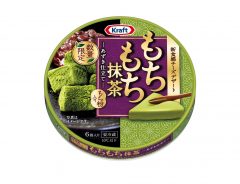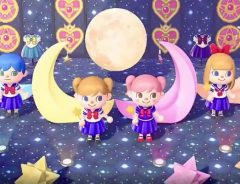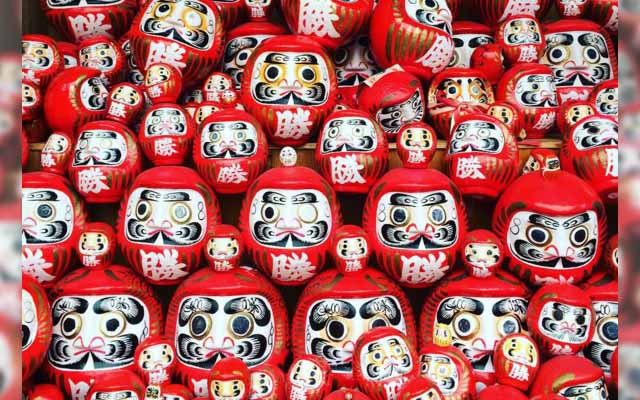Related Article
-

Kraft Mochi Mochi Matcha Red Bean dessert cheese slices released in Japan
-

More Fun And Charming Miniature World Art From Tatsuya Tanaka
-

Animal Crossing player recreates Sailor Moon transformation sequence and costume designs awesomely
-

Adorable Cat-Shaped Japanese Geta Sandals Get New White Day Release
-

SNK announces multiplatform release of The King of Fighters XV
-

Japan Releases Cafe Latte Flavored Water



Good lucks charms are popular gifts in Japan. Back when I was studying for college exams, I remember receiving a handful of good luck tokens from friends and family who encouraged me as I spent months with my face buried in books, slowly becoming more emaciated as stress and nerves consumed my body.
One of those gifts included a Daruma doll.
Also known as Dharma dolls, these hollow, round, traditional Japanese dolls are usually red and depict the face of a bearded man (Dharma). Typically, the Daruma will come with only one (or neither) of the eyes painted in. When you receive one as a good luck token, you’re meant to make a wish, then draw in the missing eye yourself after it comes true. If neither eyes are there in the first place, you can draw one in when you first make a wish and leave the other one blank for later.
Daruma dolls are considered both toys and good luck talismans. They are rich in symbolism, one of them being the symbol of perseverance.
Because of their round shape, it is impossible for the dolls to ever fall over. For the simple reason that they always get back up, they have long been popular gifts of encouragement, and many people even get some for themselves when they feel like they need a little more luck in their lives.
Perhaps due to this long-established, much-loved tradition of giving out these round little bearded men, there are now artists that are creating a more “modern” kind of Daruma dolls.
Much different than the traditional red version, these Daruma created by Utageya look far more whimsical and less orthodox, but they still help preserve the custom of handing them out to hardworking comrades and family members. Or, you can always get one (or two) for yourself!
Source: Utageya
Source: Utageya
Source: Utageya
Source: Utageya
Source: Utageya
Source: Utageya
Source: Utageya
Source: Utageya
Source: Utageya